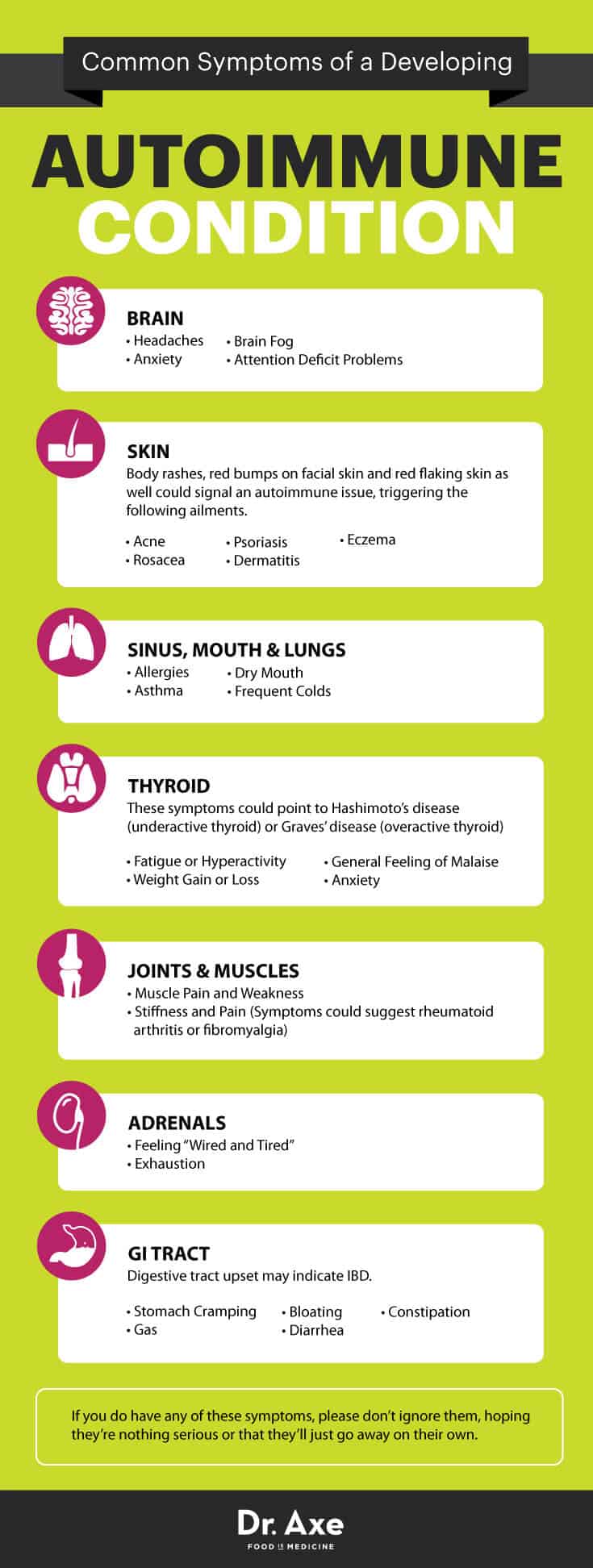This Dr. Axe content is medically reviewed or fact checked to ensure factually accurate information.
With strict editorial sourcing guidelines, we only link to academic research institutions, reputable media sites and, when research is available, medically peer-reviewed studies. Note that the numbers in parentheses (1, 2, etc.) are clickable links to these studies.
The information in our articles is NOT intended to replace a one-on-one relationship with a qualified health care professional and is not intended as medical advice.
This article is based on scientific evidence, written by experts and fact checked by our trained editorial staff. Note that the numbers in parentheses (1, 2, etc.) are clickable links to medically peer-reviewed studies.
Our team includes licensed nutritionists and dietitians, certified health education specialists, as well as certified strength and conditioning specialists, personal trainers and corrective exercise specialists. Our team aims to be not only thorough with its research, but also objective and unbiased.
The information in our articles is NOT intended to replace a one-on-one relationship with a qualified health care professional and is not intended as medical advice.
Autoimmune Disease Symptoms You Need to Know About
March 24, 2016

Autoimmune disease symptoms don’t always announce their arrival loudly. Many people slowly develop autoimmune conditions like leaky gut syndrome without even realizing anything is wrong. And the road to a diagnosis can be long and frustrating.
In fact, it can take about five years to receive an official autoimmune diagnosis. The average person goes to six to 10 doctors before autoimmunity is recognized as the culprit, largely because the symptoms of these diseases are so disparate and vague. So how can you know if you’re suffering autoimmune disease symptoms, and what can you do about them? Let’s take a look.
Common Autoimmune Disease Symptoms
Some of the most common autoimmune disease symptoms you should look out for include:
- Headaches
- Anxiety
- Brain fog
- Attention deficit problems
- Body rashes, red bumps on facial skin and red flaking skin
- Acne
- Rosacea
- Eczema
- Psoriasis
- Dermatitis
- Allergies
- Asthma
- Dry mouth
- Frequent colds
- Thyroid issues that could point to Hashimoto’s disease (underactive thyroid) or Graves disease (overactive thyroid)
- Fatigue or hyperactivity
- Weight gain or loss
- General feeling of malaise
- Anxiety
- Muscle pain and weakness
- Stiffness and pain (could suggest rheumatoid arthritis or fibromyalgia symptoms)
- Feeling “wired and tired”
- Exhaustion
- Digestive tract upset may indicate irritable bowel disease
- Stomach cramping
- Gas
- Bloated stomach
- Diarrhea
- Constipation
If you do have any of these symptoms, please don’t ignore them, hoping they’re nothing serious or that they’ll just go away on their own.

The Rise of Autoimmunity in America
If you’re experiencing autoimmune disease symptoms, you’re not alone. Our country is currently in the throes of an autoimmune storm. According to the Journal of American Medical Association, the rate of chronic health conditions among U.S. children rose almost 15 percent between 1994 and 2006, with the largest growth among conditions believed to have an autoimmune link, such as obesity, asthma, and behavioral and learning problems. (1)
For instance, the New York Times reported that blood test analyses prove young people are five times more likely to have celiac disease symptoms today than their peers in the 1950s. (2)
Here are some more numbers on autoimmune disease:
- Six to 10: The average number of doctors a person visits before autoimmunity is suspected as the culprit of symptoms
- Five: The number of years it often takes for an official autoimmune diagnosis
- 50 million: The number of Americans living with autoimmune conditions (that’s almost one in six people!)
- 70: The percentage of your immune system found in your GALT — your “gut-associated lymphoid tissue”
The Gut Connection
Studies in respected medical journals, such as the Lancet, the British Medical Journal and the International Journal of Gastroenterology have suggested that leaky gut causes autoimmune diseases, such as lupus and rheumatoid arthritis, and many other diverse health issues, including allergies, autism, depression, eczema, psoriasis, metabolic syndrome, and possibly many more diseases that are now being seen as autoimmune conditions for the first time.
More researchers and clinicians are coming around to the idea that leaky gut may provide a unifying theory for most autoimmune conditions. Normally, the body has a system of checks and balances that keeps overzealous antibody activity in line. The major player in that balance? The microbiome. But critical components of our gut community are going missing.
A group of researchers at Caltech discovered that Bacteroides fragilis, a strain of “old friend” bacteria present in 70 percent to 80 percent of humans, helps the immune system stay in balance by supporting anti-inflammatory functions. In animal studies, the researchers proved that when B. fragilis is present, it basically acts as a referee, helping restore a peaceful balance between pro‐ and anti‐inflammatory immune cells. Sadly, B. fragilis is one of the bacterial strains that have become endangered in recent history, which the Caltech researchers believe is directly related to our rapid uptick in autoimmune conditions. (3)
I know it sounds frightening — and it is. But there’s hope. Now that we’re starting to understand the source of the suffering for so many people with autoimmune conditions, we have the opportunity to stop it and vastly improve the health and longevity of our entire country at the same time. And it all starts with healing the gut.
Now, while autoimmunity is on the rise, full‐blown autoimmune conditions don’t seem to happen to everyone — yet! — and that’s great news. If we can figure out why some people get so sick and others don’t, we can tackle autoimmunity at the source.
One of the distinguishing characteristics of both leaky gut and autoimmune disease is their progressive nature. Leaky gut typically starts off as general gut inflammation but over time will advance to nutrient malabsorption and food or other chemical sensitivities. One way to start the healing process? Start eating dirt.
In addition, you want to remove foods and factors that damage the gut, replace them with healing foods, repair with specific supplements, and rebalance with probiotics.
Autoimmune Disease Symptoms Takeaways
- The symptoms of an autoimmune disease affect brain, skin, mouth, lungs, sinus, thyroid, joints, muscles, adrenals and GI tract functions.
- The average number of doctors a person visits before autoimmunity is suspected is six to 10.
- It often takes up to five years for an official autoimmune diagnosis.
- Almost one is six people in the U.S. — 50 million overall — live with autoimmune disease symptoms.
- You can tackle autoimmune disorders by addressing leaky gut, eating dirt, removing foods and factors that damage the gut, replacing them with healing foods, repairing with specific supplements, and rebalancing with probiotics.








